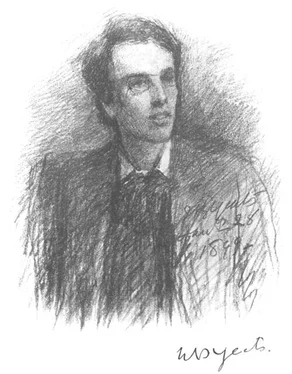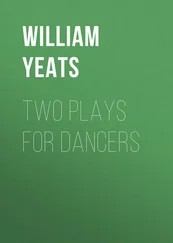William Yeats - Poems
Здесь есть возможность читать онлайн «William Yeats - Poems» весь текст электронной книги совершенно бесплатно (целиком полную версию без сокращений). В некоторых случаях можно слушать аудио, скачать через торрент в формате fb2 и присутствует краткое содержание. Год выпуска: 2012, Жанр: Поэзия, Драматургия, на английском языке. Описание произведения, (предисловие) а так же отзывы посетителей доступны на портале библиотеки ЛибКат.
- Название:Poems
- Автор:
- Жанр:
- Год:2012
- ISBN:нет данных
- Рейтинг книги:3 / 5. Голосов: 1
-
Избранное:Добавить в избранное
- Отзывы:
-
Ваша оценка:
- 60
- 1
- 2
- 3
- 4
- 5
Poems: краткое содержание, описание и аннотация
Предлагаем к чтению аннотацию, описание, краткое содержание или предисловие (зависит от того, что написал сам автор книги «Poems»). Если вы не нашли необходимую информацию о книге — напишите в комментариях, мы постараемся отыскать её.
Poems — читать онлайн бесплатно полную книгу (весь текст) целиком
Ниже представлен текст книги, разбитый по страницам. Система сохранения места последней прочитанной страницы, позволяет с удобством читать онлайн бесплатно книгу «Poems», без необходимости каждый раз заново искать на чём Вы остановились. Поставьте закладку, и сможете в любой момент перейти на страницу, на которой закончили чтение.
Интервал:
Закладка:
—Cent cinquante mille écus d'or.
—C'est fait, dirent les marchands: et ils tendirent à Ketty un parchemin cacheté de noir, qu'elle signa en frissonnant.
La somme lui fut comptée.
Des qu'elle fut rentrée, elle dit au majordome:
—Tenez, distribuez ceci. Avec la somme que je vous donne les pauvres attendront la huitaine nécessaire et pas une de leurs âmes ne sera livrée au démon.
Puis elle s'enferma et recommanda qu'on ne vint pas la déranger.
Trois jours se passèrent; elle n'appela pas; elle ne sortit pas.
Quand on ouvrit sa porte, on la trouva raide et froide: elle était morte de douleur.
Mais la vente de cette âme si adorable dans sa charité fut déclarée nulle par le Seigneur: car elle avait sauvé ses concitoyens de la morte éternelle.
Après la huitaine, des vaisseaux nombreux amenèrent à l'Irlande affamée d'immenses provisions de grains.
La famine n'était plus possible. Quant aux marchands, ils disparurent de leur hôtellerie, sans qu'on sût jamais ce qu'ils étaient devenus.
Toutefois, les pêcheurs de la Blackwater prétendent qu'ils sont enchainés dans une prison souterraine par ordre de Lucifer jusqu'au moment où ils pourront livrer l'âme de Ketty qui leur a échappé. Je vous dis la légende telle que je la sais.
—Mais les pauvres l'ont raconté d'âge en âge et les enfants de Cork et de Dublin chantent encore la ballade dont voici les derniers couplets:—
Pour sauver les pauvres qu'elle aime
Ketty donna
Son esprit, sa croyance même:
Satan paya
Cette âme au dévoûment sublime,
En écus d'or,
Disons pour racheter son crime,
Confiteor .
Mais l'ange qui se fit coupable
Par charité
Au séjour d'amour ineffable
Est remonté.
Satan vaincu n'eut pas de prise
Sur ce cœur d'or;
Chantons sous la nef de l'église,
Confiteor .
N'est ce pas que ce récit, né de l'imagination des poètes catholiques de la verte Erin, est une véritable récit de carême?
The Countess Cathleen was acted in Dublin in 1899, with Mr. Marcus St. John and Mr. Trevor Lowe as the First and Second Demon, Mr. Valentine Grace as Shemus Rua, Master Charles Sefton as Teig, Madame San Carola as Mary, Miss Florence Farr as Aleel, Miss Anna Mather as Oona, Mr. Charles Holmes as the Herdsman, Mr. Jack Wilcox as the Gardener, Mr. Walford as a Peasant, Miss Dorothy Paget as a Spirit, Miss M. Kelly as a Peasant Woman, Mr. T.E. Wilkinson as a Servant, and Miss May Whitty as The Countess Kathleen. They had to face a very vehement opposition stirred up by a politician and a newspaper, the one accusing me in a pamphlet, the other in long articles day after day, of blasphemy because of the language of the demons or of Shemus Rua, and because I made a woman sell her soul and yet escape damnation, and of a lack of patriotism because I made Irish men and women, who, it seems, never did such a thing, sell theirs. The politician or the newspaper persuaded some forty Catholic students to sign a protest against the play, and a Cardinal, who avowed that he had not read it, to make another, and both politician and newspaper made such obvious appeals to the audience to break the peace, that a score or so of police were sent to the theatre to see that they did not. I had, however, no reason to regret the result, for the stalls, containing almost all that was distinguished in Dublin, and a gallery of artisans alike insisted on the freedom of literature.
After the performance in 1899 I added the love scene between Aleel and the Countess, and in this new form the play was revived in New York by Miss Wycherley as well as being played a good deal in England and America by amateurs. Now at last I have made a complete revision to make it suitable for performance at the Abbey Theatre. The first two scenes are almost wholly new, and throughout the play I have added or left out such passages as a stage experience of some years showed me encumbered the action; the play in its first form having been written before I knew anything of the theatre. I have left the old end, however, in the version printed in the body of this book, because the change for dramatic purposes has been made for no better reason than that audiences—even at the Abbey Theatre—are almost ignorant of Irish mythology—or because a shallow stage made the elaborate vision of armed angels upon a mountain-side impossible. The new end is particularly suited to the Abbey stage, where the stage platform can be brought out in front of the proscenium and have a flight of steps at one side up which the Angel comes, crossing towards the back of the stage at the opposite side. The principal lighting is from two arc lights in the balcony which throw their lights into the faces of the players, making footlights unnecessary. The room at Shemus Rua's house is suggested by a great grey curtain—a colour which becomes full of rich tints under the stream of light from the arcs. The two or more arches in the third scene permit the use of a gauze. The short front scene before the last is just long enough when played with incidental music to allow the scene set behind it to be changed. The play when played without interval in this way lasts a little over an hour.
The play was performed at the Abbey Theatre for the first time on December 14, 1911, Miss Maire O'Neill taking the part of the Countess, and the last scene from the going out of the Merchants was as follows:—
(MERCHANTS rush out . ALEEL crawls into the middle of the room; the twilight has fallen and gradually darkens as the scene goes on .)
ALEEL
They're rising up—they're rising through the earth,
Fat Asmodel and giddy Belial,
And all the fiends. Now they leap in the air.
But why does Hell's gate creak so? Round and round.
Hither and hither, to and fro they're running.
( He moves about as though the air was full of spirits. OONA enters .)
Crouch down, old heron, out of the blind storm.
OONA
Where is the Countess Cathleen? All this day
Her eyes were full of tears, and when for a moment
Her hand was laid upon my hand, it trembled.
And now I do not know where she is gone.
ALEEL
Cathleen has chosen other friends than us,
And they are rising through the hollow world.
Demons are out, old heron.
OONA
God guard her soul.
ALEEL
She's bartered it away this very hour,
As though we two were never in the world.
( He kneels beside her, but does not seem to hear her words. The PEASANTS return. They carry the COUNTESS CATHLEEN and lay her upon the ground before OONA and ALEEL. She lies there as if dead. )
OONA
O, that so many pitchers of rough clay
Should prosper and the porcelain break in two!
( She kisses the hands of CATHLEEN.)
A PEASANT
We were under the tree where the path turns
When she grew pale as death and fainted away.
CATHLEEN
O, hold me, and hold me tightly, for the storm
Is dragging me away.
(OONA takes her in her arms . A woman begins to wail .)
PEASANTS
Hush!
PEASANTS
Hush!
PEASANT WOMEN
Hush!
OTHER PEASANT WOMEN
Hush!
CATHLEEN ( half rising )
Lay all the bags of money in a heap,
And when I am gone, old Oona, share them out
To every man and woman: judge, and give
According to their needs.
A PEASANT WOMAN
And will she give
Enough to keep my children through the dearth?
ANOTHER PEASANT WOMAN
O, Queen of Heaven, and all you blessed saints,
Let us and ours be lost, so she be shriven.
CATHLEEN
Bend down your faces, Oona and Aleel;
Читать дальшеИнтервал:
Закладка:
Похожие книги на «Poems»
Представляем Вашему вниманию похожие книги на «Poems» списком для выбора. Мы отобрали схожую по названию и смыслу литературу в надежде предоставить читателям больше вариантов отыскать новые, интересные, ещё непрочитанные произведения.
Обсуждение, отзывы о книге «Poems» и просто собственные мнения читателей. Оставьте ваши комментарии, напишите, что Вы думаете о произведении, его смысле или главных героях. Укажите что конкретно понравилось, а что нет, и почему Вы так считаете.












